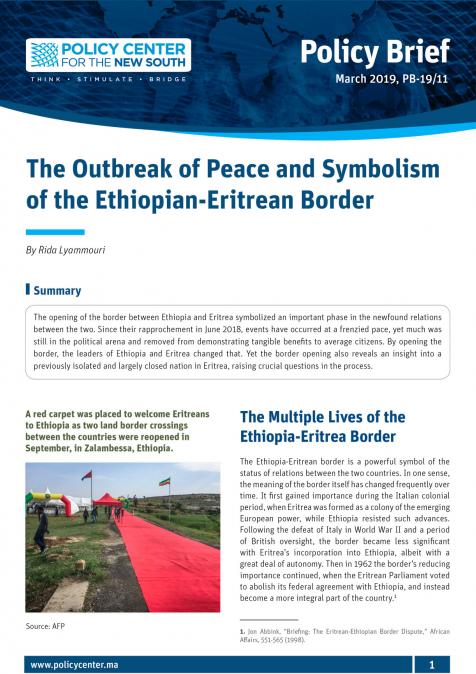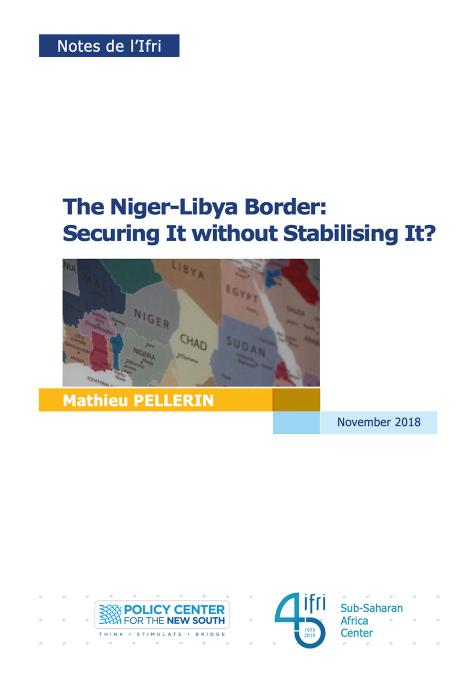John Sawers, former Chief of the Secret Intelligence Service (MI6), shares his insights on how security threats have evolved with the rise of digital technologies and social media. In this interview, he offers a compelling exploration of the shift from traditional methods to contemporary security challenges. Sawers examines how intelligence approaches have adapted to address new threats, including the influence of social media on democratic processes and the evolving global geopolitical landscape. The discussion provides An insightful analysis of the current dynamics in intelligence work and highlights the critical issues facing intelligence services in an increasingly interconnected and digital world.
RELATED CONTENT
-
May 2, 20192019 Addressing the new landscape of Terrorism -- Sammy Rangel (Life after Hate, USA) - www.policycenter.ma ...
-
May 2, 20192019 Addressing the new landscape of Terrorism -- Hadelin Fremont, Responsable Prévention de l’extrémisme violent-Bruxelles-Belgique - www.policycenter.ma ...
-
Julien NocettiApril 02, 2019Ce podcast est présenté par M. Julien Nocetti. L’intelligence artificielle est un sujet à la fois à la mode et difficile à traiter d’une perspective de politique internationale. L’intelli ...
-
AuthorsMarch 26, 2019The opening of the border between Ethiopia and Eritrea symbolized an important phase in the newfound relations between the two. Since their rapprochement in June 2018, events have occurred at a frenzied pace, yet much was still in the political arena and removed from demonstrating tangible benefits to average citizens. By opening the border, the leaders of Ethiopia and Eritrea changed that. Yet the border opening also reveals an insight into a previously isolated and largely closed ...
-
 AuthorsJean ZaganiarisFebruary 27, 2019Comment peut-on définir la présence d’’’Al Quaïda’’, de l’organisation ‘’Etat islamique’’ ou de ‘’Boko Haram’’ sur la scène internationale ? Quelles sont leurs idées, leurs actions, leurs stratégies, leurs modes de communication nationaux et transnationaux ? Ces organisations prolongent-elles un projet politico-religieux dont il faudrait chercher les racines au début des années vingt, avec la fondation des Frères musulmans en Egypte ou, bien, s’agit-il de phénomènes politiques nouve ...
AuthorsJean ZaganiarisFebruary 27, 2019Comment peut-on définir la présence d’’’Al Quaïda’’, de l’organisation ‘’Etat islamique’’ ou de ‘’Boko Haram’’ sur la scène internationale ? Quelles sont leurs idées, leurs actions, leurs stratégies, leurs modes de communication nationaux et transnationaux ? Ces organisations prolongent-elles un projet politico-religieux dont il faudrait chercher les racines au début des années vingt, avec la fondation des Frères musulmans en Egypte ou, bien, s’agit-il de phénomènes politiques nouve ... -
 AuthorsFebruary 21, 2019They just seemed like dragonflies, oversized species, menacing and reassuring at the same time. The rotor blades of the helicopters were reflecting the rays of the sun, unusually hot at these early morning hours. Graham Martin, the grey-haired US ambassador, was hurrying by foot to his residence a couple hundred yards away. He needed to get his black poodle, Nitnoy, and his suitcase. Washington had ordered the total evacuation of Saigon; the “Operation Frequent Wind” would try to sa ...
AuthorsFebruary 21, 2019They just seemed like dragonflies, oversized species, menacing and reassuring at the same time. The rotor blades of the helicopters were reflecting the rays of the sun, unusually hot at these early morning hours. Graham Martin, the grey-haired US ambassador, was hurrying by foot to his residence a couple hundred yards away. He needed to get his black poodle, Nitnoy, and his suitcase. Washington had ordered the total evacuation of Saigon; the “Operation Frequent Wind” would try to sa ... -
 AuthorsJanuary 4, 2019If you haven't read Part 1 of Cyberwarfare, click here. “THIS WEAPON WILL NOT BE PUT BACK IN THE BOX” In March 2018, the US Department of Homeland Security warned critical infrastructure operators of Russian cyberspace attacks targeting industrial control systems. Particularly endangered would be nuclear facilities, energy and water. Just recently, the Marriott /Starwood hotel chain revealed that hackers plundered 327 million guest files, including passport number ...
AuthorsJanuary 4, 2019If you haven't read Part 1 of Cyberwarfare, click here. “THIS WEAPON WILL NOT BE PUT BACK IN THE BOX” In March 2018, the US Department of Homeland Security warned critical infrastructure operators of Russian cyberspace attacks targeting industrial control systems. Particularly endangered would be nuclear facilities, energy and water. Just recently, the Marriott /Starwood hotel chain revealed that hackers plundered 327 million guest files, including passport number ... -
AuthorsMathieu PellerinDecember 21, 2018Often described as an “ungoverned area”, the Niger-Libya border is nevertheless at the centre of major economic, political and security challenges. Both the Libyan authorities and the Nigerien state are struggling to establish tight control over this, particularly isolated area. However, local actors who live there are making their own modes of governance, based on individual and so far, barely institutionalised relationships. These local forms of regulation provide states in the su ...
-
 AuthorsNovember 25, 2018Lors du Forum Russie-Afrique, tenu récemment à Moscou, le ministre russe des Affaires étrangères, Sergey Lavrov, a souligné que les relations entre son pays et ses partenaires africains ne seront pas “impactées par des facteurs extérieurs”. Venant du chef de la diplomatie russe depuis 2004, la formule peut paraître courte mais, à demi-mot, elle est porteuse de la détermination de Moscou de renforcer sa présence en Afrique, surtout que le forum de Moscou s’est tenu en préparat ...
AuthorsNovember 25, 2018Lors du Forum Russie-Afrique, tenu récemment à Moscou, le ministre russe des Affaires étrangères, Sergey Lavrov, a souligné que les relations entre son pays et ses partenaires africains ne seront pas “impactées par des facteurs extérieurs”. Venant du chef de la diplomatie russe depuis 2004, la formule peut paraître courte mais, à demi-mot, elle est porteuse de la détermination de Moscou de renforcer sa présence en Afrique, surtout que le forum de Moscou s’est tenu en préparat ... -
 AuthorsLemine Ould M. SalemNovember 12, 2018C’est l’opération de maintien de la paix la plus meurtrière de l’histoire. Installée en juin 2013, la Mission multidimensionnelle intégrée des Nations unies pour la stabilisation au Mali (Minusma) a déjà perdu près de 200 personnes. L’application des dispositions de l’accord de paix signé en 2015 entre le gouvernement malien et les groupes rebelles du Nord marque un grand retard. Pendant ce temps, l’insécurité, longtemps contenue à la seule partie septentrionale du pays, se répand a ...
AuthorsLemine Ould M. SalemNovember 12, 2018C’est l’opération de maintien de la paix la plus meurtrière de l’histoire. Installée en juin 2013, la Mission multidimensionnelle intégrée des Nations unies pour la stabilisation au Mali (Minusma) a déjà perdu près de 200 personnes. L’application des dispositions de l’accord de paix signé en 2015 entre le gouvernement malien et les groupes rebelles du Nord marque un grand retard. Pendant ce temps, l’insécurité, longtemps contenue à la seule partie septentrionale du pays, se répand a ...





